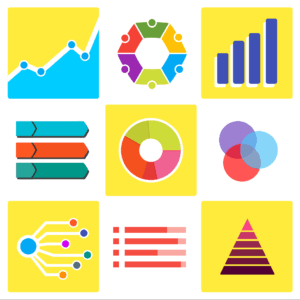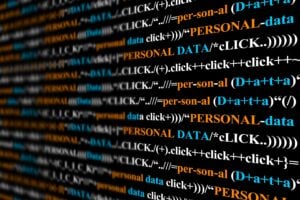Defining the Responsible AI Framework
According to IBM’s article, “What is responsible AI?”, the concept “is a set of principles that help guide the design, development, deployment and use of AI—building trust in AI solutions that have the potential to empower organizations and their stakeholders.” This takes into consideration the broader societal impact of AI systems, as well as the “measures required to align these technologies with stakeholder values, legal standards and ethical principles.”
Overall, these standards are embedded in AI applications and workflows while aiming to “mitigate risks and negative outcomes associated with the use of AI, while maximizing positive outcomes.” Standards may involve ethical challenges such as bias, transparency and the use of personal data, for example. AI ethics, then, have emerged as a way to mitigate such challenges.
IBM notes, “AI must be trustworthy, and for stakeholders to trust AI, it must be transparent. Technology companies must be clear about who trains their AI systems, what data was used in that training, and, most importantly, what went into their algorithm’s recommendations. If we are to use AI to help make important decisions, it must be explainable.” This includes:
- Explainability: Prediction accuracy, traceability, and decision understanding.
- Fairness: Diverse and representative data, bias-aware algorithms, bias mitigation techniques, diverse development teams, ethical AI review boards.
- Robustness: Robust AI calls for effectively handling exceptional conditions, such as abnormalities in input or malicious attacks, without causing unintentional harm.
- Transparency: Users must be able to see how the service works, evaluate its functionality, and comprehend its strengths and limitations.
- Privacy: Many regulatory frameworks, including GDPR, mandate that organizations abide by certain privacy principles when processing personal information.
- Implementation: As part of implementing responsible AI practices, IBM recommends that one must define responsible AI practices, educate and raise awareness, integrate ethics across the AI development lifecycle, protect user privacy, facilitate human oversight, and encourage external collaboration.
Setting AI Standards
During TMRE’s AI in Action Summit, which will take place October 27, 2025, Dr. Scott Zoldi, Chief Analytics Officer at FICO, will hold the keynote presentation, “Responsible AI: The Golden Standard.”
AI is enjoying a golden age enabling those who successfully leverage AI unprecedented new insights, tremendous efficiency, and enhanced business outcomes. Reliably achieving these outcomes does not come from chance, but rather adherence to sets of AI development and deployment standards known as Responsible AI. We will review the responsible AI tenants of robust, explainable, ethical, and auditable AI which are the standards in today’s golden age of AI.
Thoughts on the Data Science & AI Relationship
In All Things Insights’ “Data Science Invests in AI as Development Pace Accelerates,” we looked at the shifting landscape of the analytics and data science world, much of it impacted by developments in AI. It has become increasingly important to gauge the perspectives of the industry. These 10 data science thought leaders weigh in on the changes taking place associated with AI, and they share their perspectives on a range of topics from what’s on their desk this year, to what needs improvement in the field.
From Theory to Practice
The rapid pace of growth of generative AI systems presents new challenges as well as the potential for new innovations. Implementation of responsible AI, of course, can differ depending on the size, scale and scope of each specific company’s enterprise and operational capacity. Emphasizing a human-centric approach, which puts the focus on education, transparency and accountability, is a starting point of this process.
As the ISO puts it in its article, “Building a responsible AI: How to manage the AI ethics debate,” the future seems promising. ISO notes, “Responsible AI represents a comprehensive vision to mirror society’s ethical fabric within machine intelligence. It signifies a pledge to forge AI systems that uphold human rights, privacy and data protection. Through this lens, every AI initiative undertaken becomes a steppingstone towards a future where technology not only empowers, but also respects and enhances, the human condition.”
Video courtesy of IBM Technology
Contributor
-

Matthew Kramer is the Digital Editor for All Things Insights & All Things Innovation. He has over 20 years of experience working in publishing and media companies, on a variety of business-to-business publications, websites and trade shows.
View all posts


































































































































































































